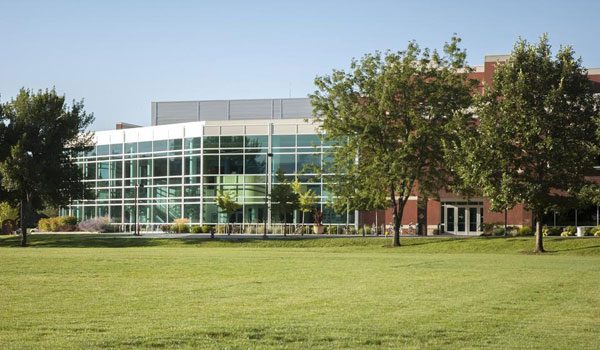Deciding on a Major, Alternatives to College and Other Education Questions Answered
Post Views 4Help Writing Grad School Essays
Earning money to pay for school
Dear Genie,
How do you calculate your major GPA?
Calculator
Dear Add It Up,
First of all, your “major GPA” may not be “formal” institution recognized Grade Point Average. It may never appear on your transcript, but you can accurately and honestly calculate this figure and share it with prospective employers. Also, you can share trends on your resume by stating “GPA since Junior Year: 3.3.”
To calculate your major GPA simply identify all courses associated with your major. I usually encourage students to include those courses from within the major department. Prerequisites from other departments, i.e. Calculus as a prerequisite for Chemistry majors, usually is not calculated into the major GPA. Once the courses have been identified, assign 4=A, 3.7=A-, 3.3=B+, 3=B, etc., etc. After, you can add totals and divide by number of courses to yield the GPA. If your school assigns varying credits to each course, with some earning 2, 3 or 4, the calculations are a bit different. After assigning the numeric equivalent of the letter grade you multiply times the number of credits, then you total and divide by the total number of credits earned. This will calculate the GPA.
Social Work Graduate Schools
Dear Genie,
I am frantically looking for a system that rates social work graduate programs. I will be relocating and am considering applying to social work programs in the new area.
Social Ladder
Dear Social,
U.S. News has an excellent database of top graduate programs, ranked by average reputation score. You should also review the websites of each school as well.
Alternatives to College
Dear Genie,
I am 20 years old and looking for alternatives to college. I would like to contribute to something worthwhile and be with like-minded people. Can you help me with information about how I search for opportunities?
Looking for a Better Way
Dear Utopia,
The opportunities for you to contribute something worthwhile to the world as an alternative to college come in two forms: paid and unpaid. In order to search for a position, either as an employee or as a volunteer, you must first decide in which area you would like to work, such as animal advocacy or fighting poverty. After determining your area of interest, you are ready to plunge into the world of volunteering and non-profit agency employment.
It is important always to remain open-minded to volunteer work because giving your time today could guarantee you a paying job tomorrow. By proving yourself to be a competent employee as a volunteer, you give non-profit directors an incentive to hire you. There are an abundance of volunteer positions available to you. Organizations such as the Peace Corps, the American Red Cross, and the Carter Center and the Clinton Foundation are always searching for extra hands to help their causes..
I recognize, however, that while volunteer work may fulfill your desire to help the world it does not pay the bills. Working as a paid employee for a non-profit agency can simultaneously satisfy your desire to be altruistic and your need for an adequate income. After contacting those agencies that are in your field, be sure to keep networking, volunteering, and searching for positions both in newspapers and on-line. Some of the sites that specialize in non- profit job searches are NonprofitCrossing.com.
Finally, while working for a non-profit agency is alternative to college, keep in mind that many non-profit employees are in fact college graduates. When applying and interviewing, you must display more than humanitarianism. Non-profit organizations, like for-profit agencies, desire well-written, well-spoken, hard working, and logical thinking employees who often develop these qualities through their college education. However, if you have marketable skills and are willing to start off at entry level, perhaps even as a volunteer, you can certainly prove that you have both the head and heart that would make you a great addition to these benevolent businesses.
Teaching Buzzwords
Dear Genie,
I would like to know what the following terms mean as used in the teaching profession: team teaching, philosophy, inclusion vs. main-streaming, developmentally-appropriate practice.
Buzzed Out
Dear Buzzed,
Team teaching is when two or more teachers work together to plan and write curricula, design lesson plans and integrate student populations. For example, often teachers of different programs will team teach to integrate bilingual education with sheltered English classes.
Philosophy is a teacher’s or school’s or district’s ideas about how students are to be taught, by what methods, by whom and toward what goal. Schools and districts usually express their philosophies in vision or mission statements.
Inclusion means providing special services (i.e. bilingual instruction, special education etc.) in the classroom as opposed to students being “pulled out” for additional services.
Mainstreaming is the practice of placing special needs students in regular education classes in order to meet the legal requirements of “least restrictive environment.”
Developmentally appropriate practice is teaching what a student is socially, emotionally and academically ready for—as opposed to teaching what is deemed appropriate for his or her grade level.
Help Writing Grad School Essays
Dear Genie,
I am preparing a two-page personal statement for graduate school. Do you know where I can get some professional help and a critique of my letter?
Looking for Maxwell Perkins
Dear Ernest,
PreferredResumes.com is an excellent web site with free guidelines for writing grad school essays.
MBA’s and Technical Careers
Dear Genie,
I have a BS degree from an international university and have been working for more than two years. Lately, the urge to gain a higher degree has started affecting my work. I have a technical background but would like to earn an MBA from a good university. Would an MBA wash away my technical work experience? Is a part-time MBA recognized in the industry?
Gotta Know
Dear Gotta,
On the contrary, an MBA from a good university will enable you to leverage your technical experience into a higher-paying job with broader responsibilities. Right now, the demand for people with both technical and management skills is keener than ever.
As for the full-time/part-time question, a part-time MBA is recognized in all fields and perceived no differently than a full-time MBA. The issue isn’t how you earned your MBA, but where you earned it. If anything, some employers may be impressed with the commitment you displayed by combining a hectic work schedule with the heavy demands of a master’s program.
Deciding on a Major
Dear Genie,
I am in my sophomore year of college and my declared major is molecular biology. After one year of taking intense science classes, I don’t think that science is right for me. Not only did I perform poorly in the classes, but I think my talents lie elsewhere. Am I just giving up too soon, or should I pursue a major more oriented toward the liberal arts?
Confused
Dear Confused,
I’ll grant you that doing poorly in classes and believing your talents lie elsewhere may be an indication that you’re on the wrong track. But before you make any major changes, do a little due diligence and ask yourself these questions: what attracted you to molecular science in the first place? Has it been a long term interest? Are you doing it because you think your parents want you to? Did you make a big poster with all the majors offered at your school and throw darts blindfolded? Seriously, it’s important that you determine whether the bloom is off the rose because you’re disappointed in your own performance or because you would enjoy something else more.
Next, talk to one of your science professors and ask for an honest assessment of your work. Find out whether it’s common for intelligent, qualified freshmen to have a hard time with these intro level courses. And while we’re on the subject, what is your definition of “poor”? It’s one thing if you’re getting D’s and F’s in your classes, but if it’s B’s and C’s, you may need to adjust your quality benchmarks. Remember that college is a lot harder than high school.
You still have three more years of school and plenty of time to make decisions about your major and your career. Whatever you do, don’t reach out for liberal arts simply because you’re having a violent reaction against the sciences. Instead, do some calm self-assessment and take a balanced course load of arts and science classes to get a feel for the greener looking grass on the other side. You’ll feel much more comfortable about your final choice if you put in the up-front work to make sure it’s what you really want.
Earning money to pay for school
Dear Genie,
I am, or at least was, a mechanical engineering student. Unfortunately, money—or lack thereof—has forced me to take some time off. So this leaves me looking for a job, and while I have several job opportunities available, none of them will be of much use to me in the field of engineering. I have every intention of completing my education, but right now I just can’t seem to find a job that will be useful to me after I graduate.
Strapped for Cash
Dear Strapped,
You’re thinking all the right thoughts, but you need a little prioritizing and organizing. Yes, it’s important that you complete your degree, and that when you graduate you have enough good experience on your résumé to help you get a fantastic job in your chosen field. But that’s long term. Right now, you need to think short term: your number one priority is to earn as much money as possible, as fast as possible, so you can go back to school. If the jobs you’ve been offered are lucrative but have nothing to do with engineering, so be it. Once you’re back in school you can do part-time internships, research projects and summer internships in your field to give your résumé the weight it needs. And don’t worry about having a “gap” on your résumé of time away from school working outside your field. Any employer will appreciate and respect your situation and the hard work you put in to reach your ultimate goal.
Master’s in Psych
Dear Genie,
What is the average salary for someone with a Master’s degree in Psychology? In other words, when I am asked to suggest what I want for a salary, what can I say without feeling over-prized (or under-prized)? I live in New York.
What Am I Worth?
Dear Worth,
The best way to answer your question is to speak to people you know – friends, colleagues, professors – about the going rate in your field. Once you get a sense of the salary range for people with a Master’s degree, your level of experience, and your desired specialty, you will have a framework for your compensation negotiation. Keep in mind, however, you should not – I repeat NOT – suggest a fixed number to a potential employer. Instead, give a salary range, and remember to include all aspects of compensation (benefits, review periods, vacation, etc.) in your discussions.
Deciding on a Major, Alternatives to College and Other Education Questions Answered by Harrison Barnes



 Does Too Much Education Make it Harder to Get a Job?
Does Too Much Education Make it Harder to Get a Job?  Should You Pursue a Master’s Degree?
Should You Pursue a Master’s Degree?  Why Changing Your Course Requires Some Finesse
Why Changing Your Course Requires Some Finesse  Weighing the Costs of another Degree
Weighing the Costs of another Degree  It’s Never Too Early to Start Your Job Search
It’s Never Too Early to Start Your Job Search  Returning to School: 11 Common Questions Answered
Returning to School: 11 Common Questions Answered  You Must Have This Critical Skill That Is in High Demand by Employers
You Must Have This Critical Skill That Is in High Demand by Employers  How Unhappy Students Can Cut Their Losses
How Unhappy Students Can Cut Their Losses